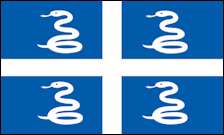Martinique - Economy
 Martinique’s economy is marked by a chronic balance of trade deficit, heavy dependency on Metropolitan France and the European Union for financial support and specialisation in few sectors which suggests the need for diversification. Its per capita income is the highest among the French Overseas Departments (DOMs) and ranks about third in the Caribbean, after the Bahamas and Barbados.
Martinique’s economy is marked by a chronic balance of trade deficit, heavy dependency on Metropolitan France and the European Union for financial support and specialisation in few sectors which suggests the need for diversification. Its per capita income is the highest among the French Overseas Departments (DOMs) and ranks about third in the Caribbean, after the Bahamas and Barbados.
The country has a demand economy which is somewhat propelled by household consumption. The economy is fast becoming a service-based economy with tourism as the leading foreign exchange earner supported by agriculture (bananas, sugar cane and pineapples) which traditionally was the key sector. The tertiary sector contributes about 80% of value-added, mainly non-market services and wholesale and retail trade. The economy is made up of many small companies. In 2005, some 17,244 enterprises were registered and it is estimated that some 1 500 business are created annually.
In 2006, the Martiniquan tourism industry reported a 2.5% increase in tourist arrivals but this followed an 8.2 % decline in 2005 and is a far cry from 2000 when 928 000 people visited the country and 2002 when arrivals reached 785,709. However long stay visitors have been on the increase, most of them slept at hotels with three stars or higher status. Consequently, the smaller establishments saw a 26 % in their customers but the occupancy rate in that section of accommodation did not fall by as much as would have been expected since the number of rooms had been reduced from the 2005 figure.
In 2014, the GDP of Martinique reached 8.4 billion euros for growth of 2.1% in value and 1.4% in volume. All components of GDP are upward-oriented and investment is the main driver of the economy. The gross domestic product of Martinique is divided into: 3.1% for agriculture, 6.3% for the industry, 48.8% for the commercial tertiary sector, 35.6% for the non-commercial tertiary sector (administrations, health, school, etc.).
Agriculture is based in part on banana and cane cultivation and the archipelago hosts large rum distilleries but the island is not self-sufficient in consumption of meat, fish and fruits and vegetables. It mainly imports from France, Germany and the United States of America. Tourism is a strong focus for the development of Martinique with very concrete prospects. The development of cruises in the Caribbean will help to increase the share of tourism in the economy and consumption in general. More than 770,000 people visited Martinique in 2015.
Agriculture was the key source of income for the country but it now accounts for only about 6% of the country?s gross domestic product. This change in fortunate can be linked to the decline in sugar and bananas which has been taking place over time. Recent changes in the preferential treatment which Europe extended to its former colonies have negatively affected Martinique?s agriculture sector. Sugar and banana producers have been facing stiff competition for market share from more price efficient overseas producers but they remain import sources of foreign exchange and local employment.
Sugar is still very important to Martinique?s economy providing direct benefits from the production of rum and sugar. There are also indirect benefits through its by-products, such as the molasses or the straw, which can be used as a source of energy, animal feed or natural fertilizers.
|
NEWSLETTER
|
| Join the GlobalSecurity.org mailing list |
|
|
|

